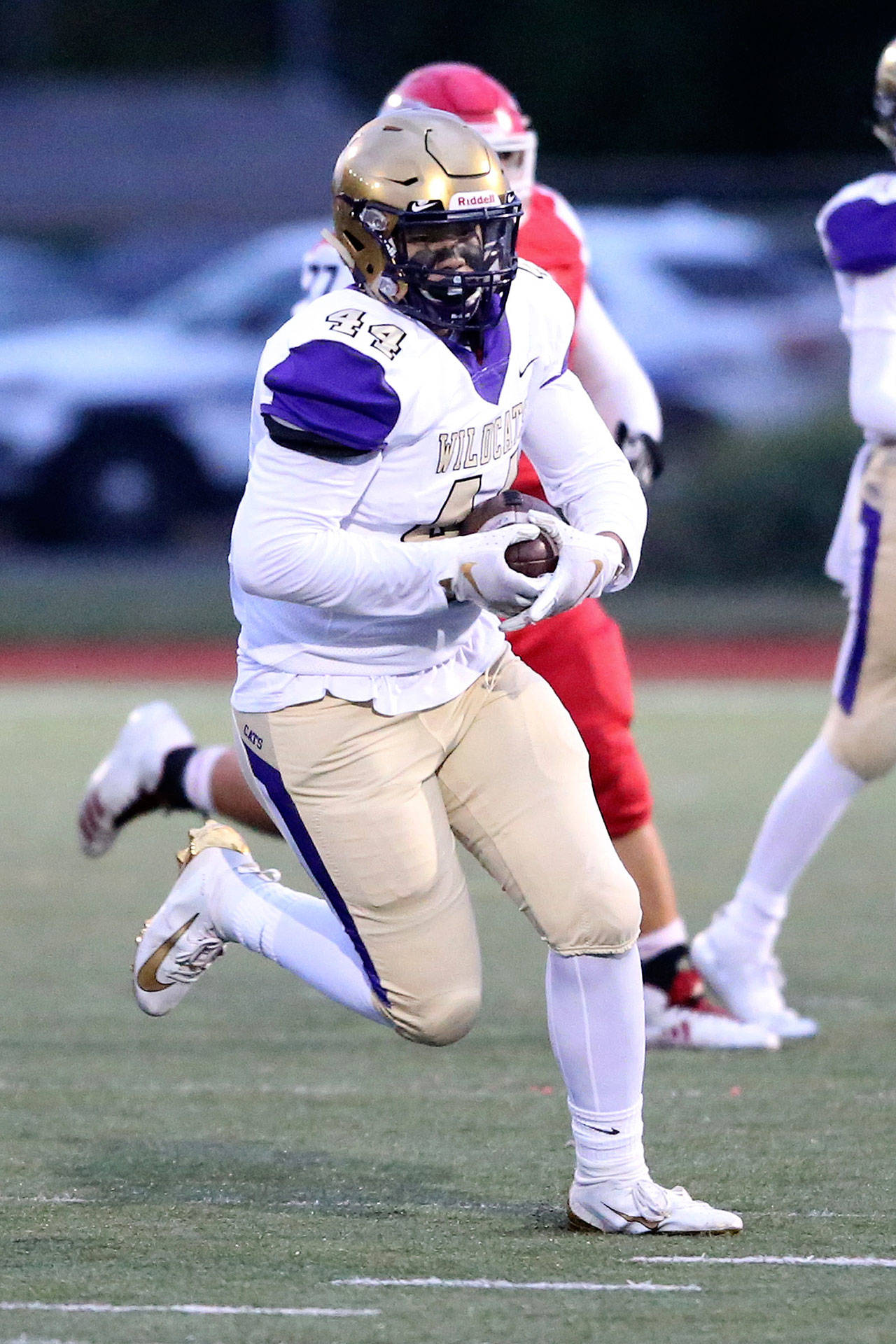Roller coaster ride, topsy-turvy, just plain weird.
Pick your description, it all comes out the same — high school sports the past six months have been anything but smooth or normal.
First, spring sports were canceled last March because of the pandemic.
Next, because of the continued threat of the coronavirus, the Washington State Interscholastic Activities Association devised a new four-season plan for prep sports for the 2020-21 school year.
Then, most season one sports were postponed to later in the school year.
Now, the earliest most teams, including the three Whidbey Island high schools, will face competition is after the new year.
Among those making adjustments are Oak Harbor High School football players. Instead of competing right now under fall Friday night lights, football will be contested this spring in season three, which begins around March 1.
“At least it did not get canceled,” senior Trevor Adams said about the move to the spring. “We get a chance to play, unlike some states.”
“It’s not that big of a deal,” he added. “It’s just a change; but some people don’t like change.”
At first, junior Nolan Byng was “a little upset” about moving football to the spring, however, “at this point, it is good that we get to play football at all.”
Senior Chris Hoppock was competing on the Wildcat track team last spring when its season was wiped out. That was “a bummer,” he said; then when he heard football and other fall sports might be in jeopardy, it “was kind of scary.”
“Personally, I didn’t think it (the pandemic) would last until next (school) year. After losing spring sports, football (in the fall) was something to look forward to.”
Playing in March will create a different atmosphere on the field, Byng said. “The experience of high school football is the feel of the fall — the weather, the homecoming game.”
Senior Ethan Decherong said the switch to spring could also affect the atmosphere beyond the stadium, touching the halls of the school.
“School isn’t the same without football in the fall,” he said. “I definitely think the morale will be different.”
The switch to spring allows the players to take advantage of their offseason efforts.
“It would be upsetting if it is canceled after all the work we put in,” Byng said. “All that time would be for nothing.”
Adams is a good example of the sacrifices the players make to get ready for the season; he cut 30 pounds and is “more in shape.”
“It would be really tough if the season was canceled,” he said, “after putting in a lot of work.”
The jump to spring isn’t ideal, the players said, but it does allow the offseason work to continue and provides more time to prepare physically for the new season.
“It is a blessing in disguise,” Decherong said. “We get the opportunity to get better.”
Adams said the players need to “take advantage of the opportunity to improve as athletes and to get into better shape.”
Decherong added that the extra time will give the senior class, and the team as a whole, more time to “get closer, become friends and form a tighter bond.”
Hoppock echoed those comments: “We have more time to build as a team; more time to build a bond.”
Getting closer as a team, however, can be “hard with all the social distancing,” Decherong added.
The benefit of having more time could also backfire, several players said.
Some may tire of the offseason conditioning, having to wait until March to play.
“We need all hands on deck, everyone going for one goal,” Hoppock said, “but there are always some people who will take a step back. If you are committed, you just have to move past it.”
A negative of the new four-season format designed by the WIAA is that each season is condensed. The football team will now play seven games instead of 10.
“For seniors, we will have less playing time,” Hoppock said. “We will just have a smaller window (to qualify for the playoffs); therefore, we will just have to prepare better.”
“I’m definitely upset that we have a shorter season,” Byng said. “But, as of right now, I am just happy we get a chance to play.”
The later and shorter season will affect recruiting, Decherong, who would like to play in college, said, “I am not sure how it is going to work for kids who want to play at the next level. It just means I need to do better, perform better in a shorter amount of time.”
He added that he has always focused on academics and could use that route for a college scholarship, but “football is where I want to get a scholarship.”
Decherong, like Hoppock, was on the Wildcat track team when its season was canceled last spring.
“A lot of my friends on the team were seniors,” he said. “I felt sorry for them.”
Now, even with the move to later in the school year, there is no guarantee that football will be played.
If the 2021 season is canceled, school “wouldn’t be the same,” Byng said.
In the chaotic, jumbled, messy world of COVID-19, there is not a lot of “same” these days.



